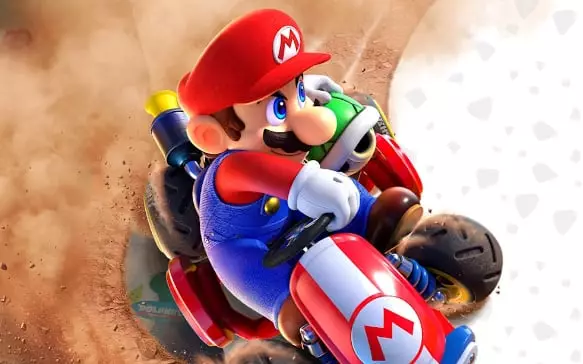The gaming landscape is ever-evolving, and one barometer for measuring the pulse of the gaming community is Famitsu — Japan’s beloved video game magazine. As the leading publication in its field, Famitsu’s “most wanted” list is not just a simple collection of titles; it serves as a powerful reflection of gamers’ aspirations and preferences. Recently, in a significant shift, Famitsu introduced Nintendo Switch 2 exclusives into its roster of anticipated games for the first time, unveiling an updated list that caught everyone’s attention.
By integrating the voices of its readership, Famitsu gives game developers a clear view of audience preferences, adding a layer of pressure and direction in production. As the gaming populace looks toward the future of consoles, their reactions to these initial titles can set precedence for what developers might focus on in the coming years. It’s more than just votes; it’s a lively democracy of creativity and expectation.
Top Contenders: A Look at the Most Desired Titles
After analyzing the list, it’s fascinating to observe the diversity of genres and franchises that have captured gamers’ imaginations. Topping the charts was none other than “Dragon Quest 1 & 2 HD-2D Remake,” boasting a whopping 737 votes. Its high position isn’t merely a matter of nostalgia; the HD-2D aesthetic has propelled this remake into modern relevance, drawing in both seasoned gamers and newcomers alike.
Following closely is “Pokémon Legends: Z-A” with 456 votes. The Pokémon franchise’s ability to continually innovate while retaining its core elements reminds players why they fell in love with it in the first place. Yet, it’s not just the classics that are in demand; titles like “Rune Factory: Guardians of Azuma” show the strong demand for fresh experiences that blend fantasy with life simulation.
Dedicated fans recognize the monumental effort developers put into these projects, and the votes translate into support that promises to shape their futures. Interestingly, there’s a healthy mix of returning franchises and emerging concepts, showcasing the community’s desire for both the familiar and the unfamiliar.
Notable Mentions: Nostalgia Meets Innovation
Furthermore, titles like “Mario Kart World,” which settled at 12th place with 145 votes, highlight gamers’ appetite for well-loved series that adapt and transform. With the promise of an open-world experience, it’s clear that players are looking for innovation within established brands. Gamers are no longer satisfied with mere sequels; they want to see their favorite characters and worlds grow and evolve, reflecting the complexity of modern gaming landscapes.
Equally intriguing is the presence of “Donkey Kong Bananza” at 23rd and “Kirby Air Riders” at 25th, both asserting that classic franchise revivals continue to hold significant sway. This generational cross-pollination of gaming interests illustrates how developers can merge nostalgia with innovation — a risky gamble that, when executed well, yields rewarding outcomes.
The Allure of Anticipation: A Psychological Analysis
The excitement surrounding these titles goes beyond mere preference; it taps into the psychology of anticipation. It’s a boost of dopamine every time we think about what’s next in gaming. This yearning for new adventures and experiences is fundamental to the human condition, manifesting in a culture of speculation and hype. The voting system employed by Famitsu not only collects data; it fuels conversations and elevates expectations, making the gaming community feel more interconnected than ever.
Participants are not just passive consumers; they are active participants in an ongoing dialogue about the future of gaming. This sense of ownership over the projects can intensify enthusiasm and loyalty towards brands. The numbers speak volumes, but the conversations they spark resonate deeply within the community.
Commercial Responses: Excitement That Drives Sales
Moreover, the fervor surrounding these titles is manifesting in real-world results. Reports indicate that pre-orders for the Switch 2 are reaching “historic” levels, a hyperbolic but illustrative reflection of community excitement. This level of enthusiasm, coupled with the higher prices for both the new console and select games, suggests that gamers are willing to invest significantly in what’s to come. It raises the question: what factors aside from nostalgia are influencing this unprecedented eagerness?
Importantly, the gaming industry thrives on feedback loops. If these anticipated titles deliver on their promises, the relationship between gamers and developers will evolve, fostering an ongoing cycle of innovation. The stakes are higher than ever, and it is this intersection of consumer behavior and market dynamics that ultimately crafts the future of our beloved pastime.
In a world increasingly defined by digital escapism, the allure of anticipated releases stands as a potent testament to our collective yearning for adventure, connection, and experience. The Switch 2 and its line-up of highly anticipated titles are emblematic of much larger trends in gaming, truly shaping the narratives of our time.

